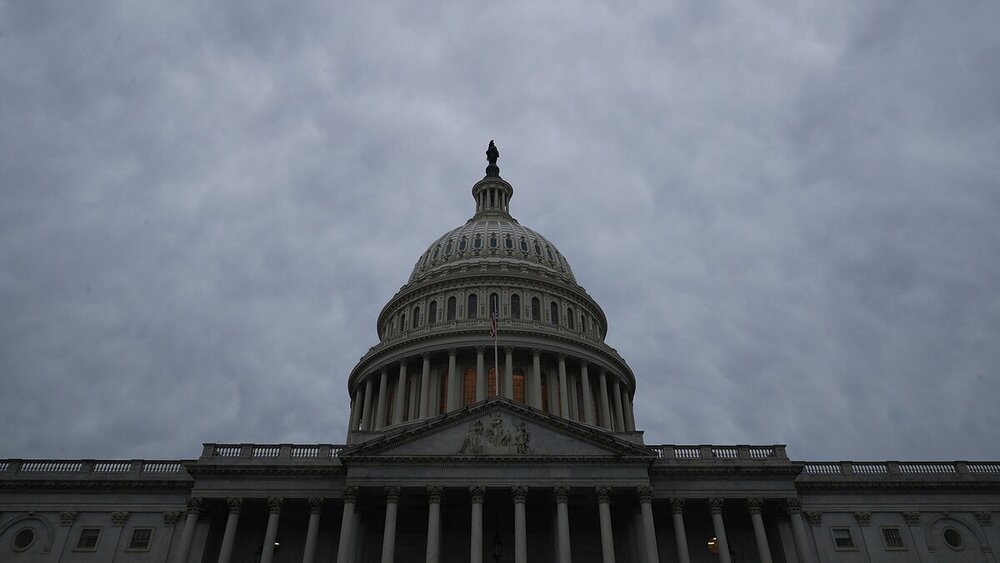Congress may impede Biden’s administration to save JCPOA

TEHRAN - The Biden administration is caught between critics in Congress and European allies over rejoining the JCPOA to restrict Iran’s nuclear program without accepting Tehran’s demands for financial relief, according to the New York Times.
Three weeks ago, as a sign of both good faith and diplomatic pressure, the United States suggested to return to nuclear negotiations with Iran, however, the American newspaper said, “The double-edged overture fell flat: Iran refused to meet without first receiving financial incentives, and the Biden administration made clear, as the White House national security adviser, Jake Sullivan, put it, that ‘the ball is in their court.’”
The Times reminded diplomats from Britain, France and Germany have since demanded Iran to accept a joint European-American invitation on Feb. 18 to begin informal talks and wrote, “Officials from China and Russia have taken a more sympathetic approach in asking Tehran in recent days to return to talks. President Hassan Rouhani of Iran discussed the delicate diplomacy in a phone call with Prime Minister Boris Johnson of Britain on Wednesday and President Emmanuel Macron of France last week.”
“We have to use this window of opportunity,” Josep Borrell Fontelles, the European Union’s top foreign policy official, told an Atlantic Council forum on Feb. 23.
Still, two rounds of shuttle diplomacy by Rafael Grossi, the director-general of the International Atomic Energy Agency (IAEA), have rescued the nuclear deal. By convincing Iran last month to allow inspectors to visit its nuclear facilities, Grossi kept Tehran from crossing a diplomatic red line.
The Times said Iran’s leaders are wary of the United States again reneging on its diplomatic assurances and said, “They have insisted they will not go back to the nuclear negotiating table until President Biden begins lifting harsh sanctions that the Trump administration imposed when it withdrew from the deal in May 2018.”
“America was first in breaking with the agreement and it should be the first to return to it,” Mr. Rouhani said on Wednesday during a cabinet meeting in Tehran.
“America should know that we are ready to implement the agreement. We are ready to implement it full in return for full and parts in return for parts. We are ready to return to our full commitments for their full return or part of our commitments for their partial return,” he added.
The American newspaper claimed Biden has his own reasons for taking a wait-and-see approach toward talks and emphasized, “He appears torn between allies in Europe and critics in Congress over broadening the nuclear accord to also limit Iran’s ballistic missiles program and its support for proxy militias across the Middle East (West Asia).”
Though many senior administration officials had negotiated the nuclear deal while working for President Barack Obama, and still support it, they also say they are unwilling to compromise further — particularly as Iran persistently tests Mr. Biden’s limits, the New York Times wrote.
“Do we expect that before we give them sanctions relief that they will verifiably either be in full compliance with the JCPOA or be on a negotiated path toward full compliance?”
Representative Brad Sherman, Democrat of California, asked Secretary of State Antony J. Blinken on Wednesday during a House hearing, referring to the nuclear accord. Blinken said, “Yes”.
The demands for a broader deal to address other Iranian issues echoes the Trump administration’s goals of a pressure campaign against Iran, the paper said. But Biden’s pursuit to “lengthen and strengthen” the deal is also calculated to satisfy Democratic critics of the JCPOA, according to the Times.
Among them is Senator Bob Menendez, Democrat of New Jersey and chairman of the Foreign Relations Committee. “Iran’s continuous engagement on so many other fronts - on the ballistic missiles, on its influence in the region - you know that just going back to the JCPOA is really a difficult proposition,” Menendez said.
The Times reported other Senate Democrats have proposed legislation to address Iran’s missile program “after such time that all sides return to their commitments.” Meanwhile,
Iran’s leaders have warned that expanding the accord is a nonstarter, and European diplomats worry that widening it in the delicate talks will damage the entire effort.
“Once we do the first step, then we can continue, or start talking about other pending issues,” Mr. Borrell said at the Atlantic Council, a policy center. “But if you start talking about the pending issues in the beginning, you will never restart.”
Trita Parsi, the founder of the National Iranian American Council and executive vice president of the Quincy Institute, a policy center that advocates military restraint, said both Iran and the United States would “have to swallow some pride and pay a political cost” if negotiations were to restart.
Pointing to the advantages of the JCPOA for Iran, the American newspaper acknowledged, “The accord had secured for Tehran billions of dollars in sanctions relief before the Trump administration reneged, shutting down Iran’s oil exports and sending its weakened economy into a tailspin. That reinforced Tehran’s suspicion that dealing with the United States was a mistake.”
Yet it is widely believed, by diplomats and experts alike that Rouhani and Iran’s foreign minister, Mohammad Javad Zarif, want to secure sanctions relief by getting nuclear negotiations well on their way before Iran’s change of power, the Times claimed.
Regarding good-faith efforts by Biden’s administration, last month, the United States lifted travel restrictions on Iranian officials visiting the United Nations headquarters in New York and dropped its demand that the United Nations Security Council enforce international sanctions against Iran.
Ultimately, the Times concluded, “Despite the impasse, American and European diplomats said informal talks could begin in coming weeks. When they do, it is expected that the United States and Iran could agree to take simultaneous steps toward coming back into compliance with the 2015 accord.”
EE/PA
